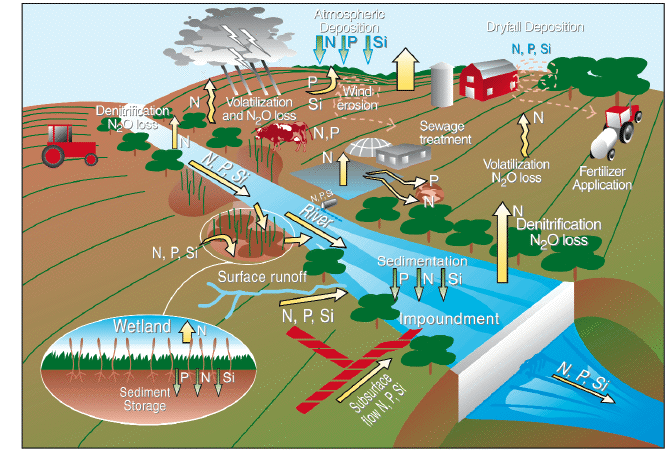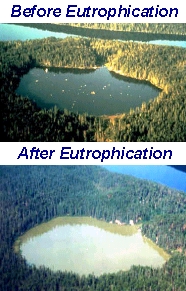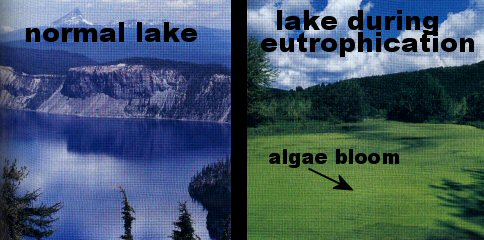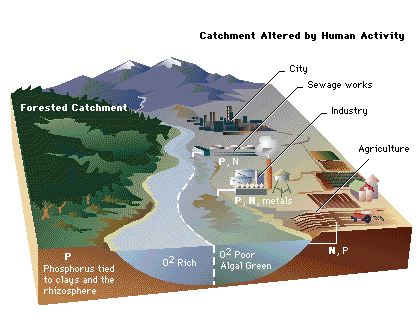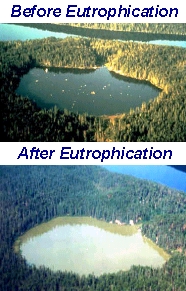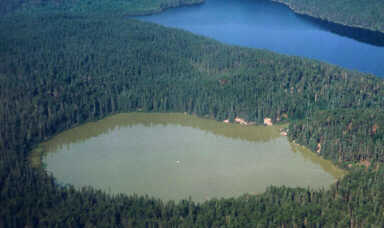Eutrophication
Eutrophication is the process of increased nutrient input to a lake over the natural supply. This increased lake fertilization usually results in an increase in the biological production that occurs in the lake. Although the increased production may increase the rate of lake filling, it is incorrect to define eutrophication as lake aging. A lake dies not when it reaches a high state of productivity, but when it no longer exists (i.e. is filled in). Lake filling results both from production that occurs in the lake, which may increase with eutrophication, and from organic and inorganic material deposited from outside the lake, which has no relationship with lake eutrophication.
Definition
The process by which a lake, pond, or stream becomes eutrophic, typically as a result of mineral and organic runoff from the surrounding land. The increased growth of plants and algae that accompanies eutrophication depletes the dissolved oxygen content of the water and often causes a die-off of other organisms. - The American Heritage Science Dictionary
Latin Translation
Eutrophic - Pertaining to well (hyper) nourishment.
Prefix "Eu-" - Well, good. Root "Troph/o" - Nourishment. Suffix - "- ic" - Pertaining to.
Additional Pictures
Links
- http://en.wikipedia.org/wiki/Eutrophication
- http://www.des.state.nh.us/factsheets/bb/bb-3.htm
- http://www.umanitoba.ca/institutes/fisheries/eutro.html
- http://ei.cornell.edu/watersheds/Eutrophication_Experiments.pdf
- http://images.google.com/imgres?imgurl=http://www.eoearth.org/upload/thumb/4/4e/SaltonSeaFishKill.jpg/300px-SaltonSeaFishKill.jpg&imgrefurl=http://www.eoearth.org/article/Eutrophication&h=202&w=300&sz=22&hl=en&start=50&um=1&tbnid=j6V1ajuFoZRj3M:&tbnh=78&tbnw=116&prev=/images%3Fq%3Deutrophication%2B%26start%3D36%26ndsp%3D18%26svnum%3D10%26um%3D1%26hl%3Den%26rls%3DIRFA,IRFA:2006-04,IRFA:en%26sa%3DN
